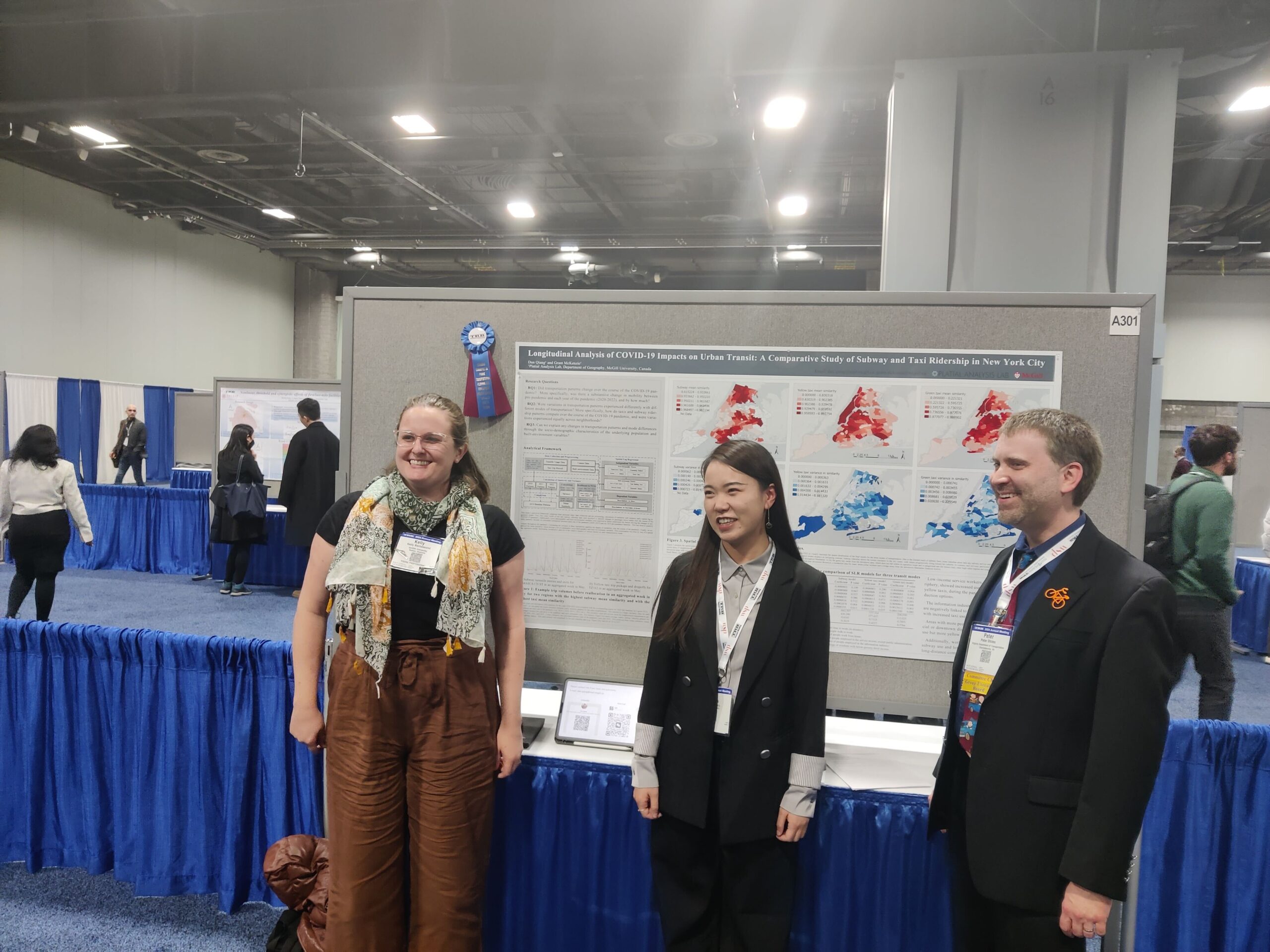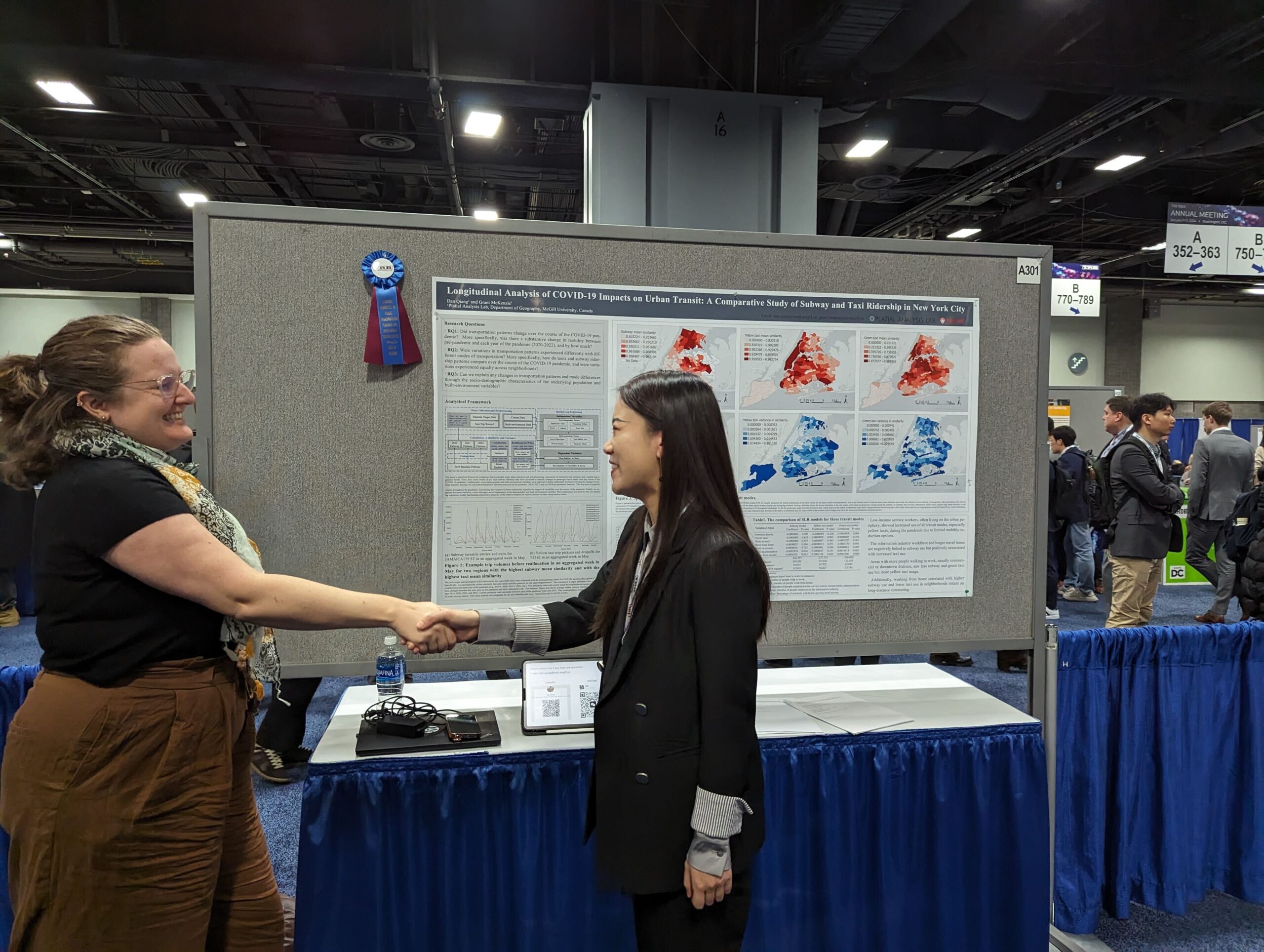Congratulations to doctoral student Dan Qiang on receiving the “Best Poster” award from the standing committee on public transportation planning and development at the 2024 annual meeting of the Transportation Research Board (TRB). Dan’s poster was titled “Longitudinal Analysis of COVID-19 Impacts on Urban Transit: A Comparative Study of Subway and Taxi Ridership in New York City.”

Abstract: Most studies examining the impact of COVID-19 on transportation focus on the early phase of the outbreak. Consequently, little work has explored changes in transportation across the entirety of the pandemic. Furthermore, most existing work has analyzed travel pattern changes in a single transit mode, with few dissecting and comparing the impacts of the pandemic on various transit modes, particularly in terms of their spatiotemporal distribution at the neighborhood level. Therefore, our study embarks on an exploration of New York City’s transportation changes over a span of four years, from 2019 to 2022. We assess the impacts on different transit modes, and track their respective trip volume changes over time and across various city regions. We also identify socio-demographic characteristics and built-environment features that help explain those changes. Our analysis underscores discernible variations in how COVID-19 has affected different transportation modes, with green taxis showing the most significant alterations. The severity of the pandemic’s impact on different transit modes varies considerably across urban regions; in downtown areas, the subway system suffered the most, while taxis were most affected in suburban regions. Through spatial regression analysis, we found that network density, income levels, work industries, commuting methods, and travel times are the variables most closely correlated with ridership changes. However, a single variable can have vastly different influences on the volume changes of different transportation modes. Our findings will inform post-pandemic transportation strategies, urban planning policy, and help to make cities more resilient in the face of future global health crises.

